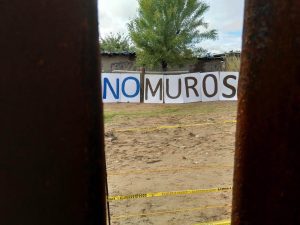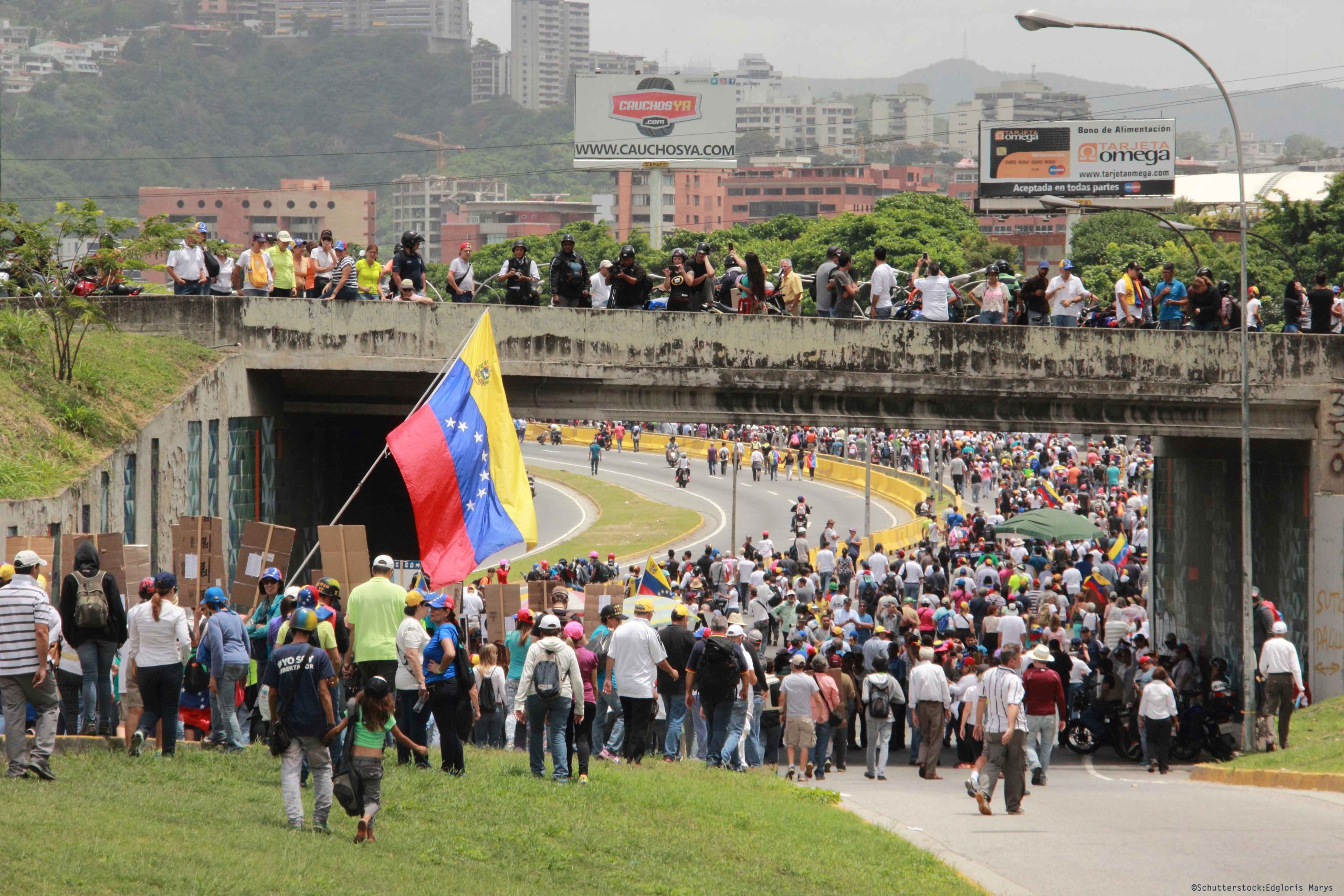
Read more
Blog, Mobility Practices and Processes
What is happening on the US-MX Border, what is likely to happen and how you can help
For the last few weeks, the coverage concerning the conditions faced by people arriving to the US Mexico border and those seeking admission into the US in search of protection has painted a harrowing...
Both the UNHCR and IOM have labelled the current Venezuelan emigration as a ‘staggering exodus’. More than 4 million people have left the country since 2015. This happened as question marks are being raised about the willingness and capacity of South American countries (where more than 90 per cent of Venezuelan emigrants are residing) to respond not only because of the potentially high political and bureaucratic costs that providing refugee protection would entail but also because of fundamental political changes at state level that mean that a much narrower vision of South American regional integration now prevails.
The most recent UNHCR Global Trends 2018 report shows Venezuelans to be the largest nationality of asylum seekers in the world. In 2018 alone, 341,800 asylum applications were made worldwide with the vast majority in other South American states. On paper, at least, South America has the most open and progressive refugee legislation in the world. Yet, South American countries have granted refugee status to a mere 21,000 Venezuelans compared to the granting of other kinds of legal status that have been given to the more than 3 million Venezuelans residing in other South American countries.
Since 2014, Venezuela has suffered a profound social, political and economic crisis. Inflation is expected to rise to 10 million percent in 2019. Estimates indicate that 41 percent of the population spends entire days without food and it is calculated that, on average, Venezuelan people have lost 10 kilos of their body weight in the last five years. The country is also facing severe health insecurity. The mortality rate for children under five years has almost doubled since 2011 and there is a critical shortage of basic medicine. Venezuela is also the country with the highest murder rate in the world.
This situation has sparked mass protests since 2018 and prompted the largest forced displacement in Latin American history. Venezuelan displacement has created new and unexpected situations. Neighbouring Peru, for example, a country without experience in managing immigration flows, is now the second-largest recipient of asylum application in the world.
Given this situation, it has been argued that Venezuelans should be granted refugee status, following the very expansive definition adopted in the Cartagena Declaration of 1984, which has been incorporated into domestic legislation by most Latin American countries. Yet, most South American countries have preferred ad hoc, temporary legal measures that grant residence permits to Venezuelans instead of recognising them as refugees using the Cartagena provisions.
As displacement from Venezuela accelerated after 2016, national governments used ad hoc instruments to provide Venezuelans with a status. The Chilean government issued “visas of democratic responsibility” that granted a one-year temporary stay permit. The Peruvian government issued border mobility cards while the Colombian authorities granted temporary stay permits. Mexico, which has not been one of the main receiving countries, is the only Latin American country that recognises Venezuelans as refugees under Cartagena.
When implementing these policies, long waiting times, high costs and a lack of coordination between state agencies have been registered. As a result, only half of the Venezuelans residing abroad actually possess a residence permit. The juridical guarantees that these policy instruments provide have been criticized for leaving many migrants in a vulnerable situation, as most of them are temporary.
As the situation in Venezuela worsened, Latin American countries have tried to coordinate their response to the crisis in several ad hoc multilateral forums such as the Lima Group and the Quito Process, although these issue only non-binding declarations. From the Quito Process there emerged in September 2018 a Declaration on Human Mobility of Venezuelan Citizens in Latin America that urged the Venezuelan government to issue travel documents to its citizens and agree to accept expired documents from Venezuelan citizens for their migratory procedures. Most importantly, the countries “confirmed their commitment… in accordance with the possibilities of each country” to provide access to public health and education, as well as “opportunities in the labour market” to Venezuelan citizens residing in their territory (irrespective of their migratory condition). Strikingly, there is no mention of the word ‘refugee’ in any of these declarations.
There are two key reasons why these countries are not granting refugee status to Venezuelans. The first is bureaucratic. The asylum systems of these countries are “too underdeveloped and understaffed” to deal with a sudden influx of asylum seekers. Adopting ad hoc instruments instead of giving refugee status is a way to ‘speed’ residence procedures while also ‘diminishing’ states responsibilities. Refugee status entails wider duties for the states and more rights for migrants. In addition, the political cost of giving refugee status to Venezuelans could be high, particularly in the main receiving countries (Colombia, Ecuador and Peru). These are countries with little experience of receiving migration flows, and prior to the Venezuelan exodus already faced considerable pressure in the provision of public services that were exacerbated by this unprecedented influx. Another result has been heightened xenophobic discourses.
The second reason relates to the interaction between the national and regional levels. Since centre-right and right-wing governments came to power across South America, the influence of ‘securitizing’ actors has increased at national level who advocate more restrictive migration policies. At the same time, the regional integration model changed from ‘multiaxial’ integration, that focused on the social and political agendas, to ‘uniaxial’ integration, focused only on economic cooperation. This shift led to the abandonment of the Latin Americanist rhetoric and the identitarian elements that defined the 2000-2015 era, in which the South American mobility regime was developed. Also, as the conservative governments’ response to Venezuelan emigration is deeply linked to foreign policy considerations, these ad hoc measures are a foreign policy instrument used to criticize and denounce the Maduro government.
The combination of these factors is particularly relevant in the case of Argentina, which used to be the regional leader in the migration agenda and which is currently lowering its profile on migration issues.
Venezuelan emigration is proving to be the greatest contemporary challenge for regional migration governance in South America. Venezuelan migration, if managed strategically at the national and regional levels, could prove to be an opportunity not only for the countries that receive a new influx of young people, eager to develop their lives in a new place, but also for the longer-term objective of creating a South American demos. The key challenge, though, is that this is happening at a time when social and political regional integration is no longer the priority for South American governments. Regional integration is viewed in narrower economic terms that prevents South American countries from adopting joint decisions that would strengthen ‘the fraternal bonds’ between South American states.
Leiza Brumat, Research Fellow at the Migration Policy Centre (MPC)
The EUI, RSCAS and MPC are not responsible for the opinion expressed by the author(s). Furthermore, the views expressed in this publication cannot in any circumstances be regarded as the official position of the European Union.

